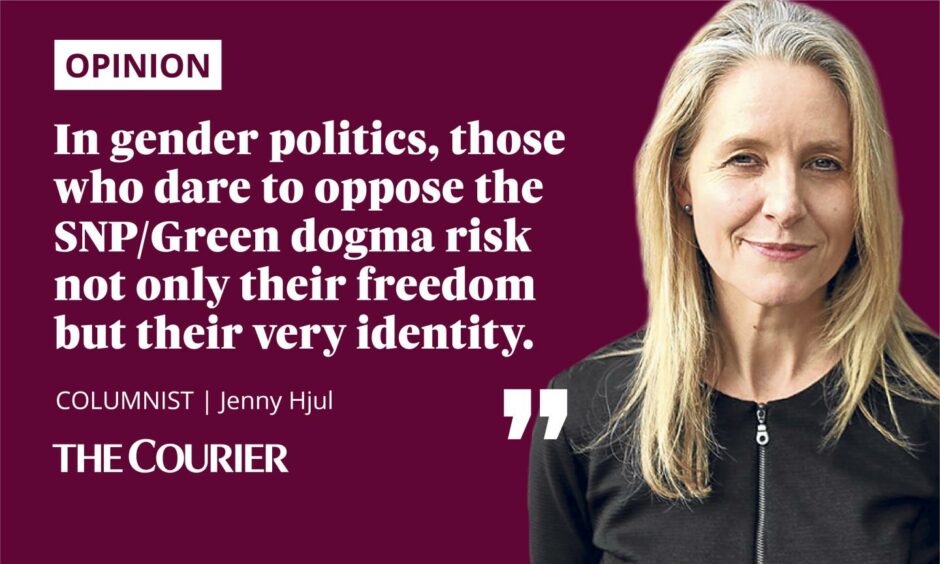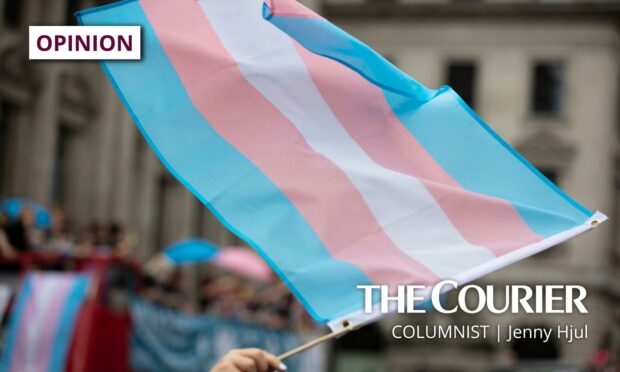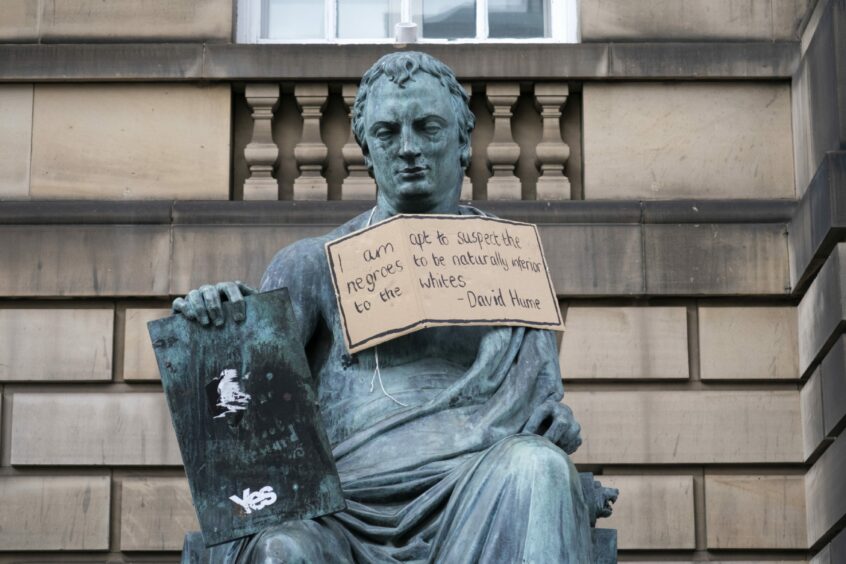There have been many signs recently that the SNP government has been in power too long and grown increasingly out of touch with the people it supposedly represents.
From dubious deals with the Greens to concerns for the future of major road projects and Scotland’s oil and gas industry, the evidence is mounting that the Nationalists have abandoned the public interest.
But nothing exposes the chasm between the mindset of our political leaders and the rest of the population more than the current culture wars.
There has been an escalation in attacks on women’s rights as the disproportionately influential transgender lobby gains ground.

It’s not just an issue in Scotland. Just last week we saw the hounding of philosophy professor Kathleen Stock from her job at Sussex University for defending the importance of biological sex over gender identity.
Stock was labelled transphobic for arguing that it should not become easier for trans people to change gender, a position which still holds legal sway south of the border, although the academic has paid a high personal price for her stance.
Unlike the rest of the UK, though, Scotland is planning to push ahead with gender recognition reform, which Nicola Sturgeon has included in her government’s new legislative programme.
That means that in a few months, in Scotland alone, anyone who wants to change their gender will be able to do so without a medical diagnosis or without medical intervention.
1) Sad to announce I’m leaving @SussexUni. Here’s the University statement. This has been a very difficult few years, but the leadership’s approach more recently has been admirable and decent. I hope that other institutions in similar situations can learn from this. https://t.co/eaYDERr03z
— Kathleen Stock (@Docstockk) October 28, 2021
Self-declaration will be all that is required for men to become women, and vice versa, and thereby have access to female-only spaces, such as changing rooms, women’s refuges and even prisons.
Women’s groups have warned the move will destroy their hard-won protections, with some calling the law the “ultimate sexism”.
SNP and Greens at odds with opinion
Concerns over the changes have not been properly addressed by the SNP, which is determined to impose its will regardless of women’s fears.
This is hardly surprising from a regime that recently bowed to pressure from the controversial charity Stonewall to drop the word “mother” from maternity policies.
Thanks to Stonewall, which clearly carries more weight with Sturgeon and her ministers than do female voters, such “gendered terms” have been replaced with “gender neutral equivalents”.
Perhaps the assumption in the SNP and Greens is that such progress needs to be foisted on the masses who don’t know what’s best for them.
But a poll over the weekend points to overwhelming public rejection of the government’s diktats.
Only one in five people questioned approved of admitting trans women into female changing rooms, toilets and hospital wards.
The survey was conducted by Panelbase for the independence supporting Scot Goes Pop blog, run by James Kelly, an elected member of the Alba Party’s national executive committee.
SCOT GOES POP / PANELBASE POLL: Substantial majority think people who change their legal gender from male to female by self-ID should not have full access to female-only spaces – https://t.co/QE8WDCCRMf
— James Kelly (@JamesKelly) October 31, 2021
It found 54% of voters believe men who classed themselves as women should not be allowed in women’s spaces. Just 22% said they should, while 25% did not know.
Far from endorsing the SNP’s extreme take on gender politics, the Scottish public appear uneasy, to put it mildly.
Wokery spreading across other institutions
In a separate development, dozens of donors to Edinburgh University have reportedly withdrawn their support in protest at the institution’s recent wokery.
The backlash follows the renaming of the David Hume Tower over concerns about the philosopher’s alleged links to slavery and comments he made in 1742.
In a Freedom of Information disclosure, it was revealed that 26 donors had cancelled direct debits over the David Hume incident.
One of the staff who denounced the decision, Dr Neil Thin, endured months of ostracism by the university for speaking out against political correctness gone mad.
Thin was eventually cleared of holding “problematic” views but the episode highlighted the extent to which Scotland has been plunged into cultural confusion, with those on the side of common sense condemned as bigots.
There have been some welcome wins of late in the fightback against cancel culture. Most notably, the Scottish feminist campaigner Marion Miller, charged under hate crime legislation over alleged homophobic and transphobic social media posts, had her case dropped last week.
It’s understood the case involved a photograph of a bow of ribbons in the colours of the Suffragettes, tied to a tree.
Thank god all charges against Marion Miller dropped. But she has been put through hell and it was meant as a warning to tell all women to shut up.
The response must be to speak up as loudly as possible. Amplify women's voices. Do your bit guys!
— suzanne moore (@suzanne_moore) October 28, 2021
Why Police Scotland thought it fit to investigate her in the first place demands an inquiry in itself but that is unlikely to happen in the present climate.
The assault on mainstream thinking by zealots with their own agenda is disturbing enough.
But when the majority fall foul of state sanctioned censorship and suppression we are in trouble.
In gender politics, those who dare to oppose the SNP/Green dogma risk not only their freedom (see Marion Miller above) but their very identity.
How ironic that this new age of chauvinism in Scotland is being championed by a female leader who, in an interview with Vogue, said she was the last woman standing.
She may end up being right.

